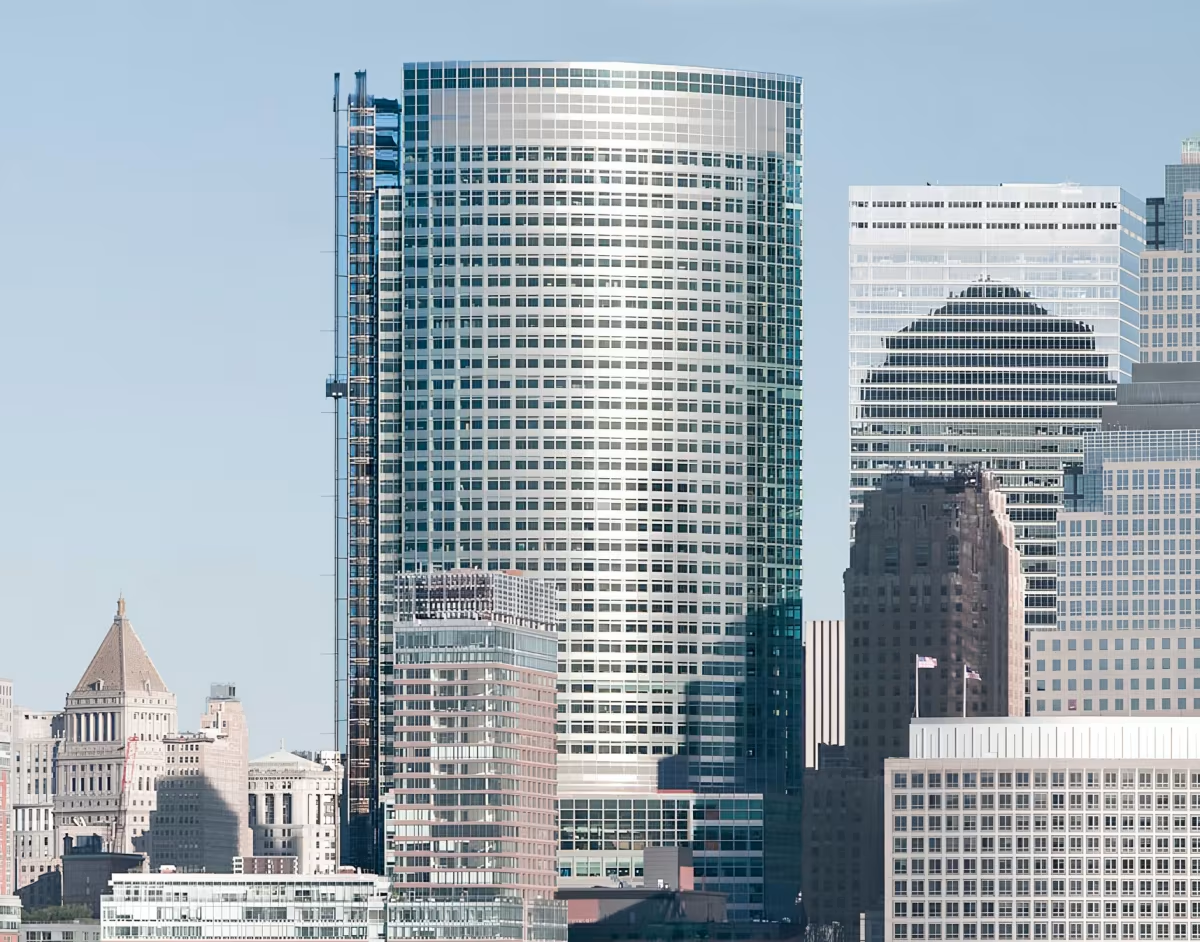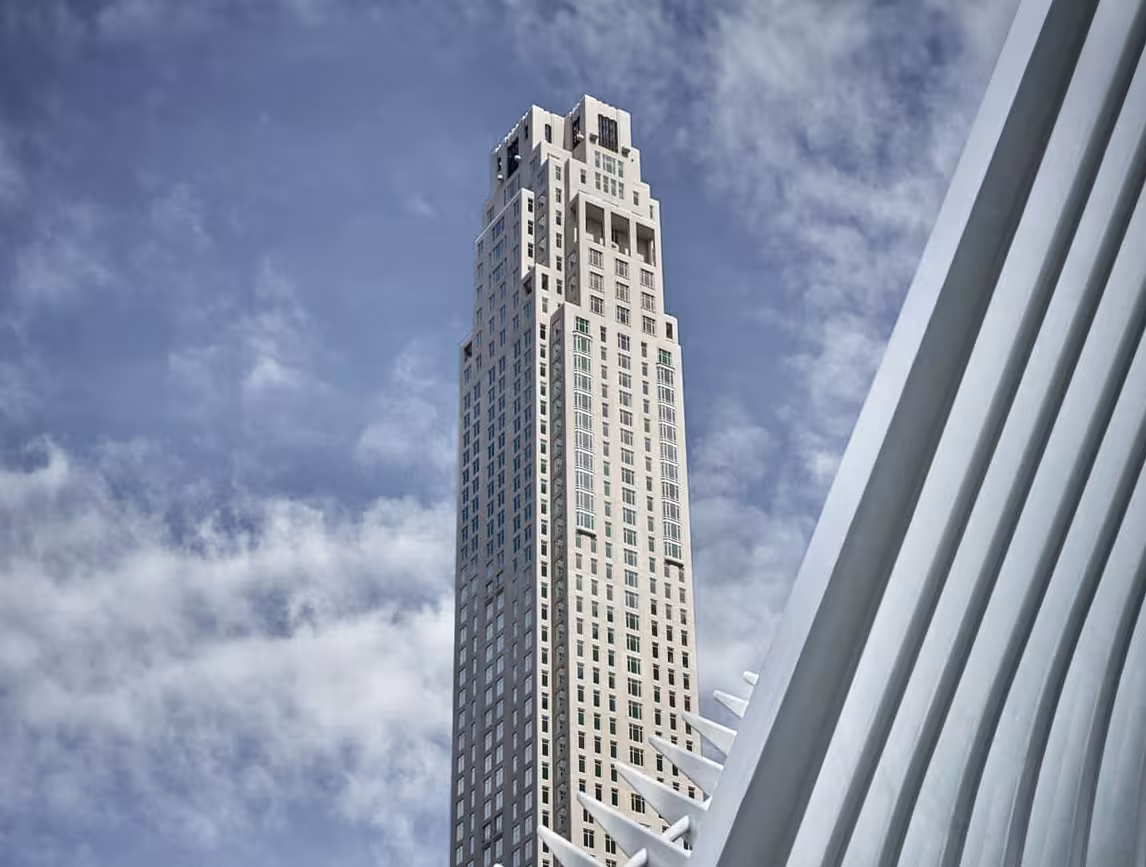200 West Street Building vs Four Seasons New York Downtown


Comparing the 200 West Street Building and the Four Seasons New York Downtown is interesting because they both rise in New York, NY, yet they were conceived by two different design teams, Pei Cobb Freed & Partners and Robert A.M. Stern Architects, and were completed at different points in time. They were finished more than 6 years apart.
This contrast within the same city allows us to see how different creative minds interpreted the evolving needs of New York across time.
Let's take a closer look!
Height & Size
The Four Seasons New York Downtown is clearly the larger tower of the two, both in terms of height and number of floors. It rises to 925ft (282m) with 82 floors above ground, while the 200 West Street Building reaches 741ft (226m) with 45 floors above ground.
Of course, each project may have faced different briefs or regulatory constraints, which we don't really know about and could also explain the outcome.
Architectural Style
Both the 200 West Street Building and the Four Seasons New York Downtown were designed in line with the aesthetic conventions of the Contemporary style.
At the time, this style was at the height of its popularity. So both Pei Cobb Freed & Partners and Robert A.M. Stern Architects followed what was in many ways expected of them, producing designs that fit comfortably within contemporary architectural norms, rather than breaking with convention.
Uses
The Four Seasons New York Downtown follows a mixed-use model, combining residential and hotel. In contrast, the 200 West Street Building has remained primarily commercial.
The Four Seasons New York Downtown incorporates a 5-star hotel with 189 rooms. More information is available at the official website.
The Four Seasons New York Downtown offers 157 residential units.
Structure & Facade
The two buildings opted for different structural and facade solutions.
The 200 West Street Building uses a Trussed Frame system, which uses diagonal bracing in addition to beams and columns for stability, while the Four Seasons New York Downtown uses a Frame system, that relies on a regular grid of columns and beams to sustain its weight.
And when it came to the facade, the Curtain Wall went with a Curtain Wall facade, which uses a lightweight glass curtain wall hung from the structure, while the Four Seasons New York Downtown opted for a Modular facade, that employs prefabricated panels, often mixing solid surfaces with smaller windows.
| 200 West Street Building | Four Seasons New York Downtown | |
|---|---|---|
| Pei Cobb Freed & Partners | Architect | Robert A.M. Stern Architects |
| 2005 | Construction Started | 2013 |
| 2010 | Year Completed | 2016 |
| Contemporary | Architectural Style | Contemporary |
| Commercial | Current Use | Mixed |
| 45 | Floors Above Ground | 82 |
| 226 m | Height (m) | 282 m |
| Trussed Frame | Structure Type | Frame |
| Steel | Vertical Structure Material | Concrete |
| Poured Concrete Over Metal Decking | Horizontal Structure Material | Concrete, Steel |
| No | Facade Structural? | No |
| Glass, Steel | Main Facade Material | Limestone, Concrete |
| Tishman Construction | Main Contractor | Tishman Construction |
| Goldman Sachs | Developer | Silverstein Properties |
| Cosentini Associates | MEP Engineer | WSP Flack + Kurtz |
| Halcrow Yolles | Structural Engineer | WSP Cantor Seinuk |
| NY | State | NY |
| New York | City | New York |
| 200 West Street | Address | 30 Park Place |